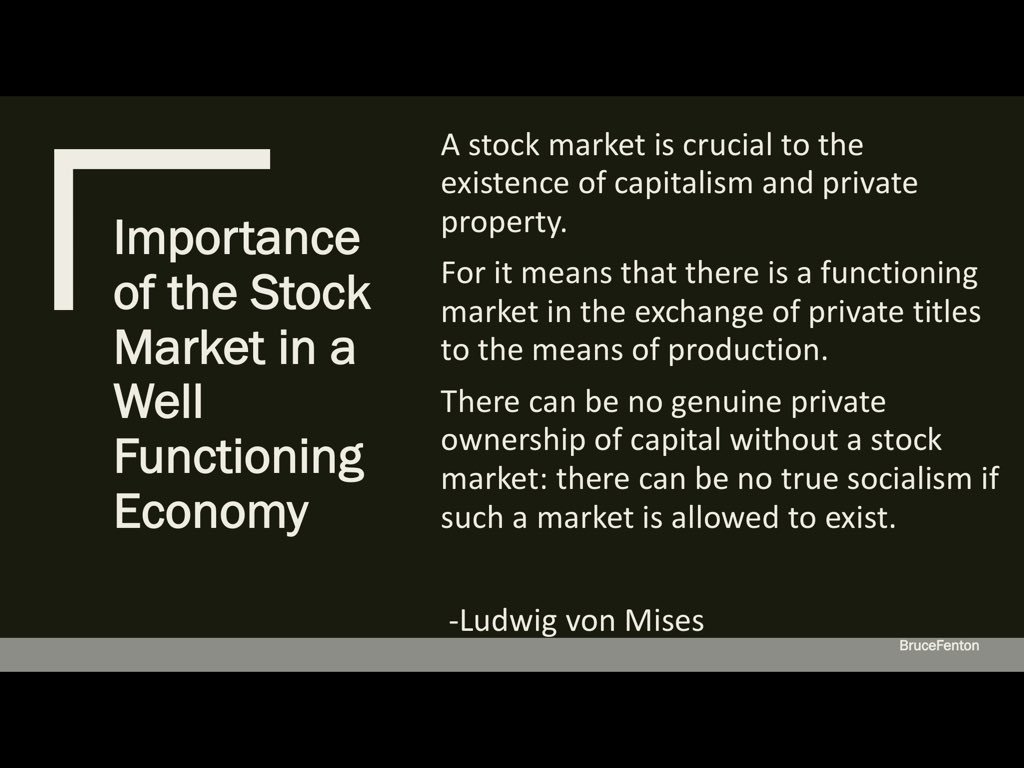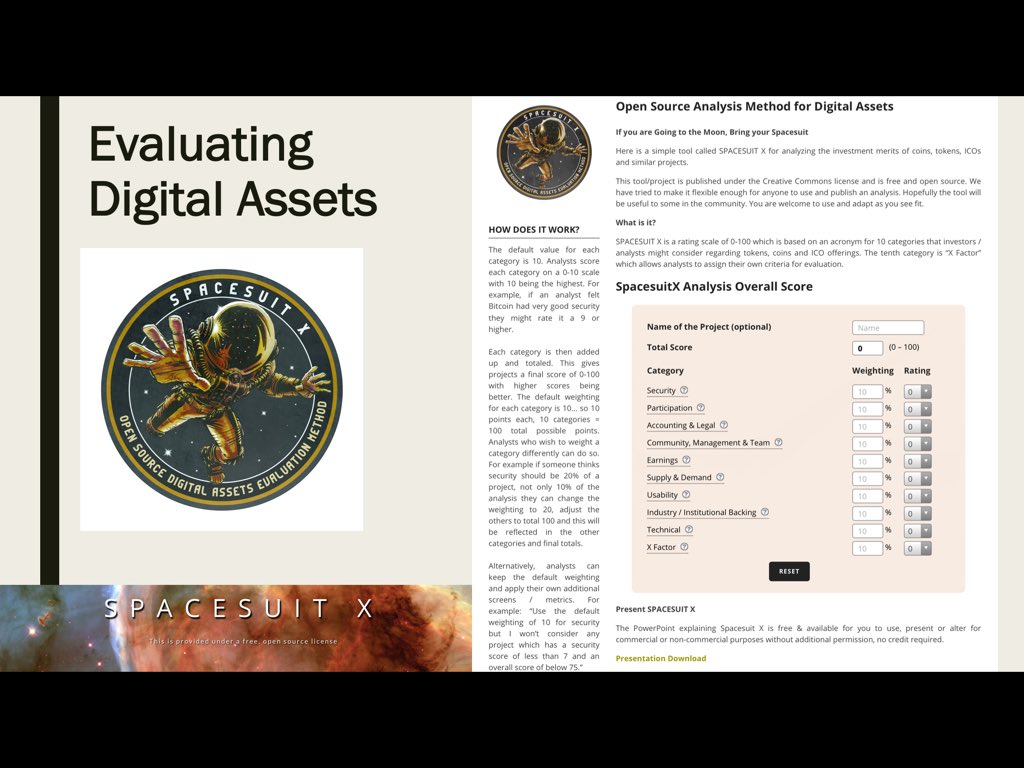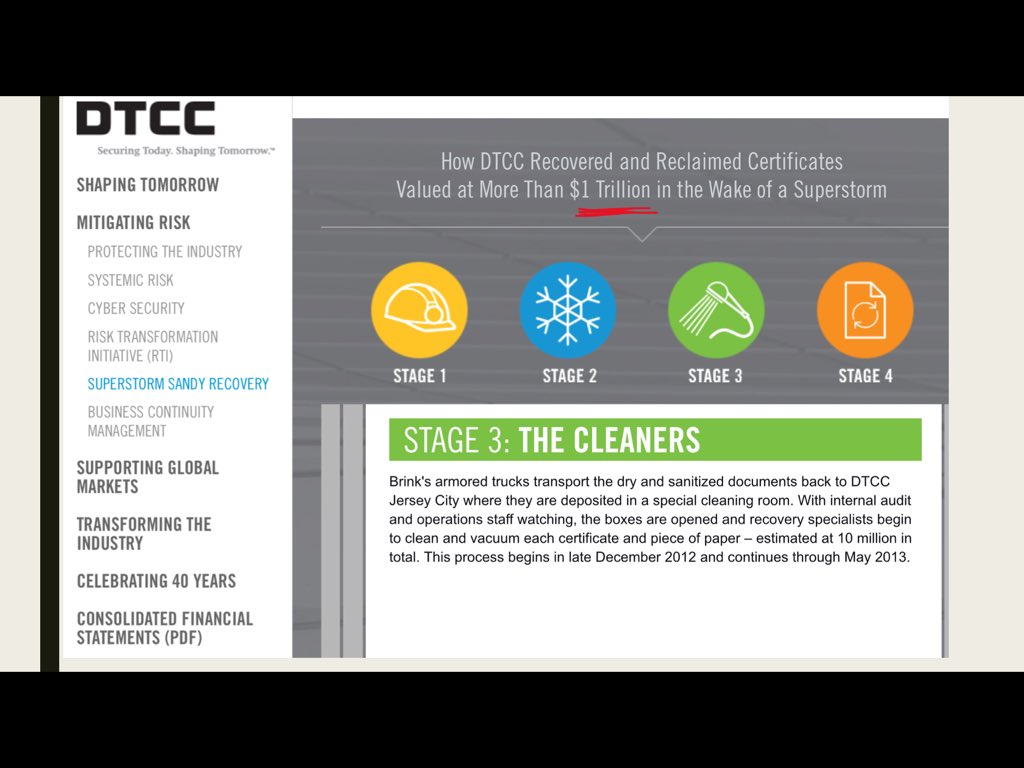1/ Here are the slides from my talk at #BH2018 Baltic Honey Badger by Hodl Hodl
My goal is to explain:
- why stocks/ securities are a foundation of global commerce
- how ledgers work now
- why Cypherpunks, Bitcoiners & free market economists should care
Past, Present & Future
My goal is to explain:
- why stocks/ securities are a foundation of global commerce
- how ledgers work now
- why Cypherpunks, Bitcoiners & free market economists should care
Past, Present & Future

2/ Understanding the problems and how ledgers currently work is key to addressing some major points people often ask about:
- the value of a blockchain or token
- why a database can’t be used
- the value of a blockchain or token
- why a database can’t be used

3/ Securities tokens will include many scams & many low quality offerings - if a securities token revolution occurs it may bring with it a large number of fraudulent & low quality offerings just like the ICO wave
However legit securities themselves are a key part of economics
However legit securities themselves are a key part of economics

4/ I think Cypherpunks should care about this for a lot of reasons
Anyone who cares about commerce, the economy or Austrian economics should care a lot about the capital markets
Why do I care? It starts with my mom, a former waitress who became a stockbroker in 1977
Anyone who cares about commerce, the economy or Austrian economics should care a lot about the capital markets
Why do I care? It starts with my mom, a former waitress who became a stockbroker in 1977

5/ I pretty much grew up in a brokerage firm - I played with the Quotron computer, read the pink sheets after school
Got my first job at 14 at Dean Witter, became a broker at 19 or so and eventually ran my own firm — then an RIA then I got into crypto
Got my first job at 14 at Dean Witter, became a broker at 19 or so and eventually ran my own firm — then an RIA then I got into crypto

6/ if secutities is in your DNA you might think about things differently than if currency is your main focus
Most important is that current and secutities are VERY different
Features which make Bitcoin good money are irrelevant or counterproductive for securities
Most important is that current and secutities are VERY different
Features which make Bitcoin good money are irrelevant or counterproductive for securities

7/ Trust and trust assumptions are very important in evaluating money
Scarcity, limited supply etc are also key for currency...but not for securities
All that matters for a security is what the terms of the agreement are and how it can be enforced
Scarcity, limited supply etc are also key for currency...but not for securities
All that matters for a security is what the terms of the agreement are and how it can be enforced

8/ When evaluating digital assets there are many layers: first you should categorize if it’s a stock or other security, an illegal security, utility, collectible, protocol etc.
Then you can evaluate chain strength, security etc. then you eval other items
Here’s a cheat sheet
Then you can evaluate chain strength, security etc. then you eval other items
Here’s a cheat sheet

9/ This is called Spacesuitx @spacesuit_x and is Free and Open Source
It’s yours! Use it, copy, make it into an analysis business, fund, issue reports etc.
Hopefully the tool gives some ideas to think about when you evaluate digital assets
It’s yours! Use it, copy, make it into an analysis business, fund, issue reports etc.
Hopefully the tool gives some ideas to think about when you evaluate digital assets

10/ Let’s get back to one key type of digital asset: securities
The first publicly tradable company was the Dutch East India Company, aka VOC
Prior to this, shipping expeditions were funded one by one - if your ship sunk you lost
This invention spread risks in a better way
The first publicly tradable company was the Dutch East India Company, aka VOC
Prior to this, shipping expeditions were funded one by one - if your ship sunk you lost
This invention spread risks in a better way

11/ From a financial perspective, the results were interesting
1100+ people contributed about $300k each in today’s dollars
This spread risk in a way which had never been done before
VOC used this capital to do things no one had done
This caused rapid growth
1100+ people contributed about $300k each in today’s dollars
This spread risk in a way which had never been done before
VOC used this capital to do things no one had done
This caused rapid growth

12/ Eventually VOC became larger (in today’s value) than several of the world’s largest companies combined
A new form of sharing risk and trading that risk / agreement forever changed the way capital and business worked
A new form of sharing risk and trading that risk / agreement forever changed the way capital and business worked

13/ The idea of spreading risk among more than one investor was revolutionary
Thousands of companies followed the model of VOC
It seems normal now, but it was an amazing innovation and remains a fundamental part of global economics
Thousands of companies followed the model of VOC
It seems normal now, but it was an amazing innovation and remains a fundamental part of global economics

14/ with a proliferation of stocks and other securities came markets - many are still in existence today 

15/ these markets have used whatever tech has been available
Generally when better tech comes along capacity and volume increases
Generally when better tech comes along capacity and volume increases

16/ for most of their history, markets have been run by pen and paper
Inventions like the ticker tape increased efficiency
Inventions like the ticker tape increased efficiency

17/ Here are traders at the Baghdad stock exchange after the US invasion
If you are a stockbroker and have customers and stocks and your whole world is on fire - what do you do?
You make trades & discover prices - even by whiteboard
Markets don’t stop for anyone
Ever
If you are a stockbroker and have customers and stocks and your whole world is on fire - what do you do?
You make trades & discover prices - even by whiteboard
Markets don’t stop for anyone
Ever

18/ Pen & paper isn’t scalable in global markets
Understanding the problem means understanding how the ledgers work today
Contrary to what many think it’s NOT your issuer (like Apple) who keeps track of the ledger of who owns shares
That’s done by a complex settlement system
Understanding the problem means understanding how the ledgers work today
Contrary to what many think it’s NOT your issuer (like Apple) who keeps track of the ledger of who owns shares
That’s done by a complex settlement system

20/
If you own Apple stock...how do you know you really own it?
You trust a custodian of a broker...but how do you know they have the stock?
Brokers don’t share ledgers with each other OR the securities issuer
They trust 3rd parties like DTCC & Euroclear
If you own Apple stock...how do you know you really own it?
You trust a custodian of a broker...but how do you know they have the stock?
Brokers don’t share ledgers with each other OR the securities issuer
They trust 3rd parties like DTCC & Euroclear

21/ Since brokers don’t trust each other with their ledger and the issuer doesn’t have the ledger, who does?
It used to be handled by a combo of bearer assets and internal ledgers
In the late 1960s it became consolidated with trusted 3rd parties
It used to be handled by a combo of bearer assets and internal ledgers
In the late 1960s it became consolidated with trusted 3rd parties

22/
The settlement of securities caused scaling issues: it used to be settled by messengers delivering physical shares
The system could not track real ownership by 1996 so Wall St put all ownership of stocks in one name: Cede & Co then set up ways to claim this
The settlement of securities caused scaling issues: it used to be settled by messengers delivering physical shares
The system could not track real ownership by 1996 so Wall St put all ownership of stocks in one name: Cede & Co then set up ways to claim this

25/ there are drawbacks of this system
For example when Dole Foods was acquired, the company thought they had 36 million shares outstanding but 49 million shares worth of claims came in
For example when Dole Foods was acquired, the company thought they had 36 million shares outstanding but 49 million shares worth of claims came in

26/ Bloomberg explains it well here:
You don’t own your shares
You own a claim on a claim to these shares
You don’t own your shares
You own a claim on a claim to these shares

27/ There are other issues with trust of a centralized third party
Millions of shares were nearly destroyed by Hurricane Sandy for example
Millions of shares were nearly destroyed by Hurricane Sandy for example

28/ It took a year and a half of specialists in secure rooms with water vacuums & dryers to recover the shares
The value: over $1 trillion
This may seem antiquated but DTCC is actually techncailly advanced - they do what is possible based on how the ledgers work
The value: over $1 trillion
This may seem antiquated but DTCC is actually techncailly advanced - they do what is possible based on how the ledgers work

29/ We can do better
The ledger is already distributed - but we can eliminate the need for the trusted third parties and have tokens trade and settle just like Bitcoin or any other crypto
The ledger is already distributed - but we can eliminate the need for the trusted third parties and have tokens trade and settle just like Bitcoin or any other crypto

30/ You can use the power of a trustless distributed ledger whether the blockchain knows your token exists or not
On this video I created a real security using Bitcoin, Open Dime & a pen
On this video I created a real security using Bitcoin, Open Dime & a pen

32/ This tech works
It has been employed, tested & proven
Securities tokens have been issued on Bitcoin & other chains
I believe this will continue & increase
Regulation is clear imho: (in the US that means following existing SEC regs)
issues will still need work:
It has been employed, tested & proven
Securities tokens have been issued on Bitcoin & other chains
I believe this will continue & increase
Regulation is clear imho: (in the US that means following existing SEC regs)
issues will still need work:

33/ What could this mean for the future?
Unlocking trillions in capital and making a million businesses publicly traded
It will shake and transform the foundations for all we know about how capital formation and the global economy works
I think it will be massive
Unlocking trillions in capital and making a million businesses publicly traded
It will shake and transform the foundations for all we know about how capital formation and the global economy works
I think it will be massive

34/ Imho the best way to do this is with trustless, open source systems
If you want to work on this let’s do it
We are setting up a series of workshops in the NH countryside (or Seacoast) an hour from Boston
BlockchainNH.com is one conference coming up in a couple weeks
If you want to work on this let’s do it
We are setting up a series of workshops in the NH countryside (or Seacoast) an hour from Boston
BlockchainNH.com is one conference coming up in a couple weeks

/ thanks for reading
• • •
Missing some Tweet in this thread? You can try to
force a refresh








